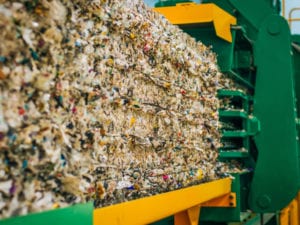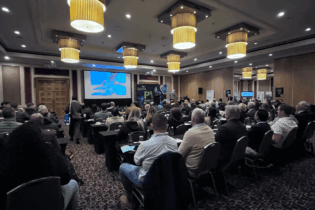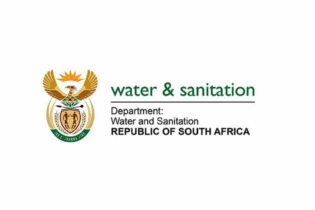Mpact, the largest paper and plastics packaging business and recycler in Africa, reported their year-end results for the 12 months ended 31 December 2022.
Bruce Strong, Mpact Chief Executive Officer, said: “
We’ve had a good year thanks to our robust operations and strong financial performance. Our investment in solar and backup power increased the resilience of our operations during load-shedding, while our continued research and product innovation have brought us even closer to our customers.”
Group revenue for the year ended 31 December 2022 increased by 7.1% to R12.4 billion mainly due to higher average selling prices. Excluding revenue of R72 million and volumes relating to the Baywhite distribution agreement with Mondi that terminated at the end of December 2021, Group revenue increased by 15.2% and sales volumes by 6.3%.
Underlying profit growth is strong, with EBIT up by 22.9% to R1.164 billion (2021: R948 million) due to strong local demand in the Paper business and higher average selling prices achieved in the last quarter to recover higher input costs.
Underlying EPS increased by 26.7% to 456 cents (2021: 360 cents) due to strong earnings growth. ROCE improved to 18.5% (2021: 17.8%).
OPERATIONAL OVERVIEW
Paper business
Segment revenue increased by 6.7% compared to the prior year to R10.3 billion (2021: R9.7 billion). Excluding revenue relating to the Baywhite, Group revenue from the paper Paper business increased by 16.3% and sales volumes by 6.9%. Selling prices increased in the last quarter to recover higher input costs.
Strong domestic containerboard demand and reduced Baywhite sales led to a favorable sales mix variance when compared to the prior year.
The Felixton Paper mill achieved record production of 210 646 tonnes, up 9% on 2021. The result exceeds the 2017 rebuild project target capacity and was achieved on the back of recent mill optimisation and de-bottlenecking initiatives.
Paper converting’s sales volumes increased on the back of good growth in the industrial and quick-service restaurant sectors, with the latter demand possibly supported by load-shedding as more customers ordered in food. It was pleasing to see strong growth in new product sales, albeit off a low base, as a result of sustained demand in home delivery paper bags and Freshpact® punnets and trays. These gains more than offset the loss of business due to the KwaZulu-Natal (KZN) floods during the first half of the year, which resulted in some paper converting customers shutting for a few months.
Underlying operating profit in the Paper business of R1.1 billion was up 26.8% on the prior year primarily as a result of improved trading.
The segmental result includes insurance proceeds of R47 million received in respect of the final settlement amount for the Springs municipal electricity supply interruption in 2020 and R8 million relating to flood damages during April in KZN. Direct costs attributable to the KZN floods amounted to R12.8 million.
The underlying operating profit margin improved to 10.7% from 9.0% in 2021.
Plastics business
Revenue in the Plastics business was up 9.7% to R2.0 billion (2021: R1.9 billion). Average prices increased 9.9% and volumes were in-line with the prior year with an increase in Bins and Crates offset by a decline in the FMCG business due to lower demand as well as the seven days of downtime at the FMCG Pinetown factory attributable to the floods in KZN. Preforms and closure volumes remained flat.
Underlying operating profit of R198 million (2021: R200 million) was similar to the prior period. Improved profitability at Bins and Crates, and Preforms and Closures, were offset by reduced profits in FMCG when compared to the prior year. FMCG profitability was impacted by the floods in KZN in April, with direct costs and write-offs of R10.2 million being incurred. This was however offset by insurance proceeds of
R13.6 million.
The consolidation of the two preforms and closures plants in Wadeville is now complete and related cost savings are being realised. While the Bins and Crates Castleview project was delayed due to late delivery of new equipment, five machines were installed during the year bringing the total to six at year-end. A further three machines will be installed in the first half of 2023.
INVESTMENT FOR GROWTH AND SUSTAINABILITY
Mpact continues to make good progress on several strategic initiatives that focus on growth sectors and the circular economy where we see significant opportunity for long-term value creation. These are primarily organic projects which will extend our innovative product and service offering, generate sustainable energy, and make a positive impact on our communities. We have also focused on portfolio optimisation and alignment with our strategy to grow where the growth is and divest where appropriate.
Mpact recently announced a R1.2 billion investment in our Mkhondo Paper Mill to meet growing virgin containerboard demand to create quality, sustainable, fresh produce packaging, driven by the robust long-term growth trends in the South African export fruit sector. The project demonstrates our strong belief in our project management track record and the sustained need to invest to support the growth prospects of, particularly, our fruit exporters whose own investment in significant new plantings signals the long-term demand for our products.
This investment follows others such as the development of Mpact Plastic Containers’ new Castleview production and Brits recycling facilities, Mpact Corrugated’s new customer service centre in Limpopo, Mpact Recycling’s new purpose-built facility in KZN and the expansion of the Group’s solar photovoltaic (PV) generation capacity.
Mpact’s paper mills have demand curtailment agreements with Eskom rather than being subject to load-shedding schedules. Consequently, they have not been materially affected by load-shedding to date. To the extent possible converting operations have amended production schedules to meet customer requirements and where feasible generators and solar are being used or installed. To increase our own energy resilience, we rolled out an additional 5.3MWp of solar PV at a further five plants in 2022, bringing the current total to 9.4MWp at 10 operating sites. We have also already approved plans for a further 6.7MWp at two sites in 2023. An additional 10.6MWp is in the pipeline for another two sites, pending approval. Several of our converting operations already have back-up generators and we are evaluating the electrical infrastructure requirements to have generators installed where practical at other sites to increase our operational resilience when the electricity infrastructure fails.
OUTLOOK
While cost inflation may reduce from the high levels of the past year, we expect costs to remain elevated and consumer spending to remain under pressure. This in turn may affect demand for some of our products and place pressure on margins. Notwithstanding, several of our products are targeted at sectors which are expected to grow in the foreseeable future, and are partly shielded from South African consumer spending patterns. These include fruit exports, convenience shopping, recycling and waste management.
The Paper business is expected to continue to benefit from good domestic containerboard and cartonboard demand, with all paper machine capacity fully allocated to customers until the end of September. In addition, the recovery of higher manufacturing costs through increased selling prices in the final quarter of 2022 will be positive for the business. The Felixton Mill upgrade project, aimed at increasing the production of lightweight recycled containerboard by an additional 16,000 tonnes per annum, is scheduled to be completed during the third quarter of 2023.
Margins in the Paper Converting business are expected to remain under pressure due to significant containerboard cost increases which may not be fully recovered in selling prices.
The Plastics business is anticipated to benefit from the consolidation of the two preform and closures factories in Wadeville during 2022. We also continue to work on optimising production efficiencies, along with increased profitability in the Bins and Crates business as the new Castleview factory gains critical mass.
The indirect effects of load-shedding on our customers and future demand in general remains uncertain.
Strong concluded: “
Looking forward we will continue implementing our value-enhancing strategy and to optimise the business portfolio while pursuing organic and in-organic growth. Our business, and our competitive advantage, is the circular economy. Because what goes around as packaging, comes back around as sustainable profit.”







